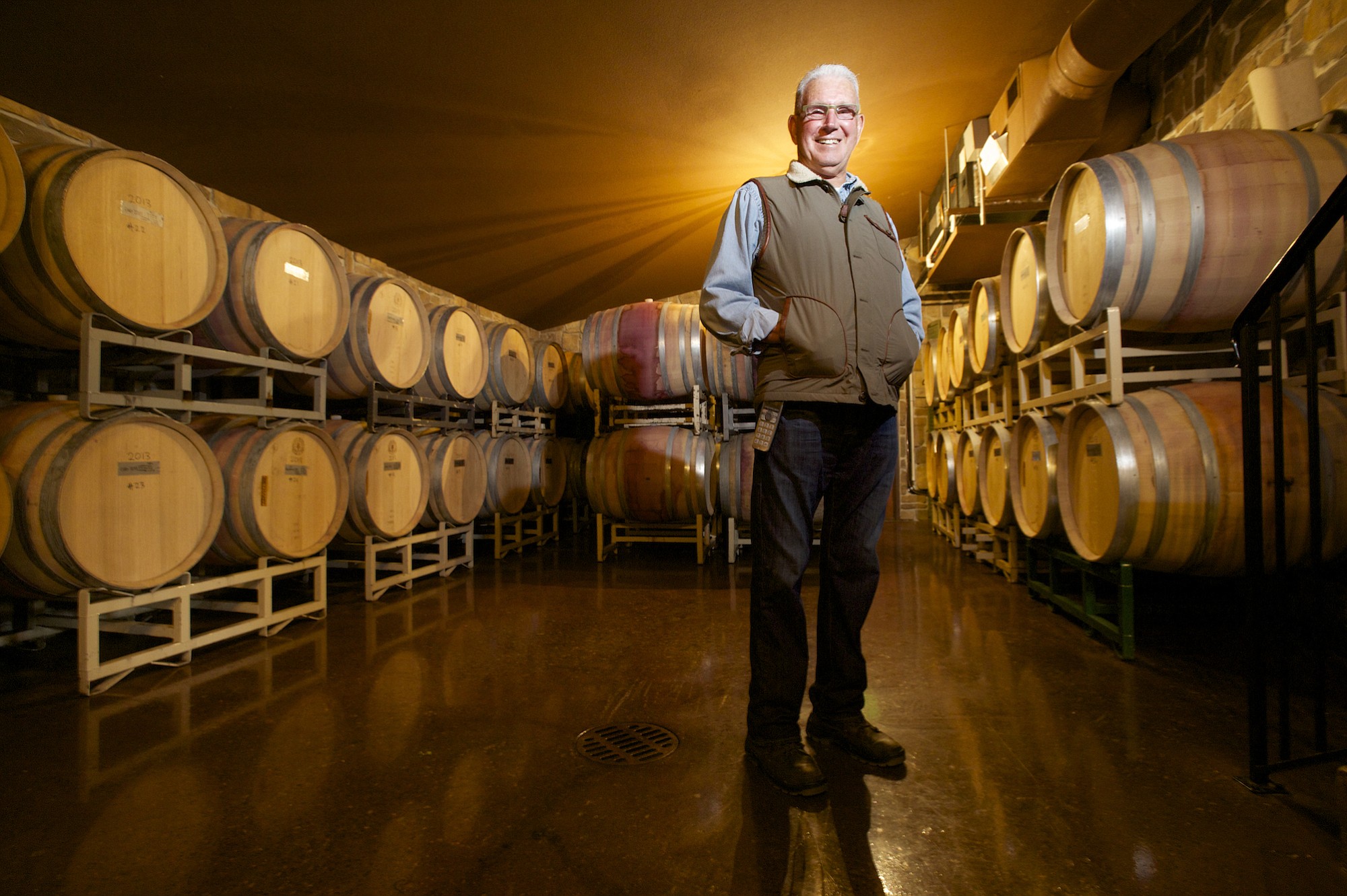o What: “The Promise of Washington Wines,” WSU Vancouver Chancellor’s Seminar Series, with Thomas Henick-Kling, director, viticulture and enology program, WSU Tri-Cities.
o When: 11:45 a.m. to 1:30 p.m. Friday.
o Where: Firstenburg Student Commons, WSU Vancouver, 14204 N.E. Salmon Creek Ave., Vancouver.
o Cost: $25 includes lecture, lunch and parking. Tickets: bit.ly/1vJxfFD
o Web: bit.ly/1xj425S. Bethany Vineyards: www.bethanyvineyards.com
RIDGEFIELD — On a sunny autumn morning, Walt Houser walked the rows of his vineyard, examining the deep purple grapes and calculating when they’ll be ready for harvest.
o What: "The Promise of Washington Wines," WSU Vancouver Chancellor's Seminar Series, with Thomas Henick-Kling, director, viticulture and enology program, WSU Tri-Cities.
o When: 11:45 a.m. to 1:30 p.m. Friday.
o Where: Firstenburg Student Commons, WSU Vancouver, 14204 N.E. Salmon Creek Ave., Vancouver.
o Cost: $25 includes lecture, lunch and parking. Tickets: bit.ly/1vJxfFD
o Web: bit.ly/1xj425S. Bethany Vineyards: www.bethanyvineyards.com
The previous day, he’d finished harvesting wine grapes at his 15 acres in Dallesport, about 100 miles east in the Columbia River Gorge. Earlier that morning, he and his two full-time vineyard workers had pressed those grapes, which now were fermenting in enormous covered vats.
But these grapes still ripening on the vine were not yet ready, Houser said. Maybe another week or two, depending upon the weather. Then he and his two full-time workers and 10 temporary workers will pick the wine grapes by hand. It takes about two weeks to complete the harvest.
Houser will join Russell Brent, owner of Mill Creek Pub in Battle Ground, in providing a perspective on the Clark County wine industry at the Washington State University Vancouver Chancellor’s Seminar Series at 11:45 a.m. Friday at WSUV. Thomas Henick-Kling, director of the viticulture and enology program, WSU Tri-Cities, is the keynote presenter.
Houser and his wife, Beth, own Bethany Vineyard & Winery on 80 acres east of Ridgefield. Houser learned wine-making from his dad, who was a hobby winemaker. Houser named the vineyard after his wife. They planted their first grapes in 1999 and sold their first vintage in 2002.
He plants more grapes each year, and now has 29 acres planted in wine grapes at his Ridgefield vineyard. The varieties they grow include pinot noir, pinot gris, pinot blanc, chardonnay, riesling and barbera. Last fall, Houser planted about 6,000 new vines.
Since retiring a decade ago, Houser has focused full time on growing grapes and making wine. Bethany Houser does the marketing “and all the smart stuff,” he said.
Originally built in 1942, the tasting room is a repurposed cow-feeding barn and mechanical shop. The Housers converted the space into a tasting room in 1999.
Eventually, they built a second, outdoor tasting room resembling an open lodge, with big beams constructed via mortise and tenon. The winery is open weekends. In addition to Bethany wines, it sells box lunches, hummus plates and cheese. Summer concerts and weddings are staged on a pavilion overlooking a small lake. He employs part-time workers in the tasting room.
“We sell 98 percent of the wine we make right here,” Houser said.
Like Bethany Vineyard & Winery, most of Washington’s wineries are small family businesses.
Exploding industry
The Washington wine industry is exploding with growth. The number of wineries in Washington increased by 1,500 percent in the three decades from 1981 (50 wineries) to 2013 (more than 800 wineries), according to the Washington Wine Commission. By July 2013, the state was adding 10 new wineries per month.
This year’s wine grape harvest — an estimated 230,000 tons — is expected to be 10 percent higher than last year’s harvest.
That’s great news for the Washington wine industry. The only bad news for the industry is that it can’t hire enough employees well-versed in wine production and sales.
“With this strong growth history and continued projected growth, the industry realized several years ago that they needed an educated workforce,” said Henick-Kling.
Most of the WSU program’s students already work in the wine industry, he said.
Roots at the fort
The first wine grapes in Washington were planted at Fort Vancouver by the Hudson’s Bay Company in 1825. But farmers who first settled in Clark County preferred growing plums to grapes.
Today, vineyards dot the landscape from Camas to Ridgefield to Battle Ground, and wineries and tasting rooms have opened throughout the county.
The current Washington wine industry started in the Yakima Valley around Grandview, Prosser and Sunnyside in the 1970s, Henick-Kling said. But today, vineyards are planted throughout the state.




